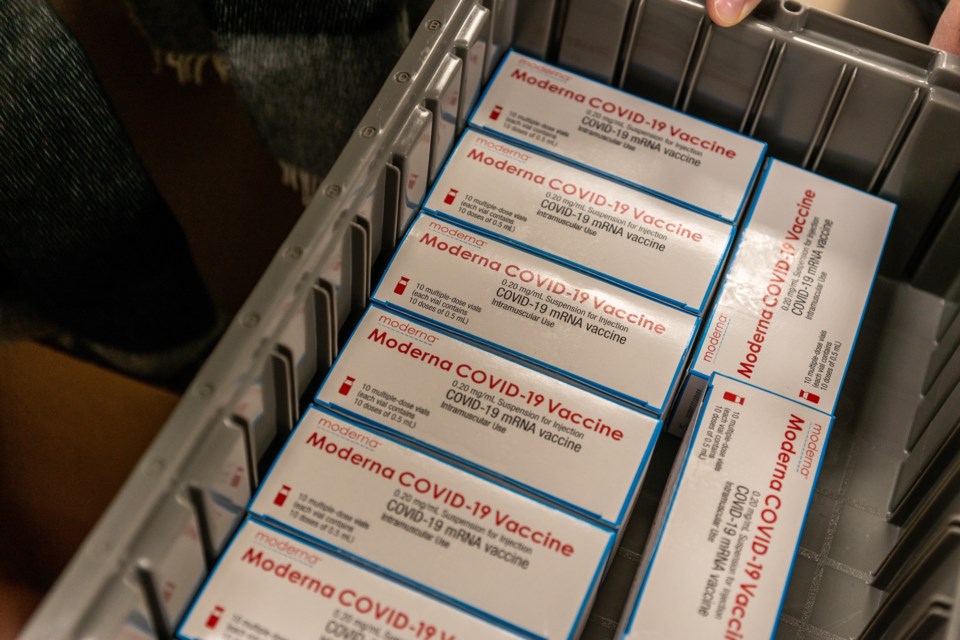Nak’azdli Whut’en Chief Aileen Prince is excited to see COVID-19 vaccines finally on the way for members of her community near Fort St. James.
“I hope that we can give it to our community members as fast as we can and get some process going so people can see some light at the end of the tunnel,” Prince said in a Facebook update Monday, Jan 11.
Health director Verne Tom confirmed the Moderna COVID-19 vaccine would arrive anywhere between Jan. 13 and Jan. 21.
Tom said the past 10 months have been challenging for many communities hit with COVID-19 and that many people are experiencing the stresses of knowing they cannot visit their family members who are in hospital.
“As First Nations people, we like to interact with one another and we like to be there to support one another, and in this time, we can’t because of COVID,” he said.
Nak’azdli Whut’en is one of the latest Indigenous communities selected to receive vaccines. The first wave of the COVID-19 vaccine roll-out was launched Dec. 23 in 10 rural and remote Indigenous communities in B.C., mostly in the north, where health care services are limited.
Takla Nation health and holistic services director Crystal French said they had learned they were among the recipients on Christmas Eve.
“It was the first time we had all slept since March,” French said of the 200 vaccines that arrived by helicopter Dec. 29.
Nak’azdli Whut’en was next in line due to recent activity in large numbers of COVID-19 positive cases from November up until now, according to community health nurse Renada Walstrom.
Walstrom said it is unknown how many vaccines Nak’azdli Whut’en will receive, although it could range anywhere from 200 to 500 doses.
If on the lower end, the vaccine will be available for those on-reserve 65 and older, as well as those living with chronic conditions, she said. If on the higher end will be available for anyone 18-years and older.
The first dose, which is followed by a second dose approximately 35 days later, will be administered via appointment at Kwah Hall where recipients will be required to wait at least 15 minutes to rule out any adverse reaction.
Walstrom said the vaccination bookings would require a high level of planning as each vial contains ten doses, which have to be administered within six hours of the vial being opened.
Tl’azt’En Nation member and primary care physician Dr. Terri Aldred who practices in Indigenous communities in northern B.C. was vaccinated on Jan. 1 with minimal side effects.
Although Aldred said she experienced tiredness and soreness in her arm after being inoculated, she could still go out skiing.
“After I got the vaccine, one of the biggest things I felt was relief and that there is a little bit of hope,” Aldred said.
“We still have a long way to go, and life definitely won’t be going back to quote on quote normal, but it just made that light at the end of the tunnel look a little bit bigger and give me hope that we’re going to get through this together.”



